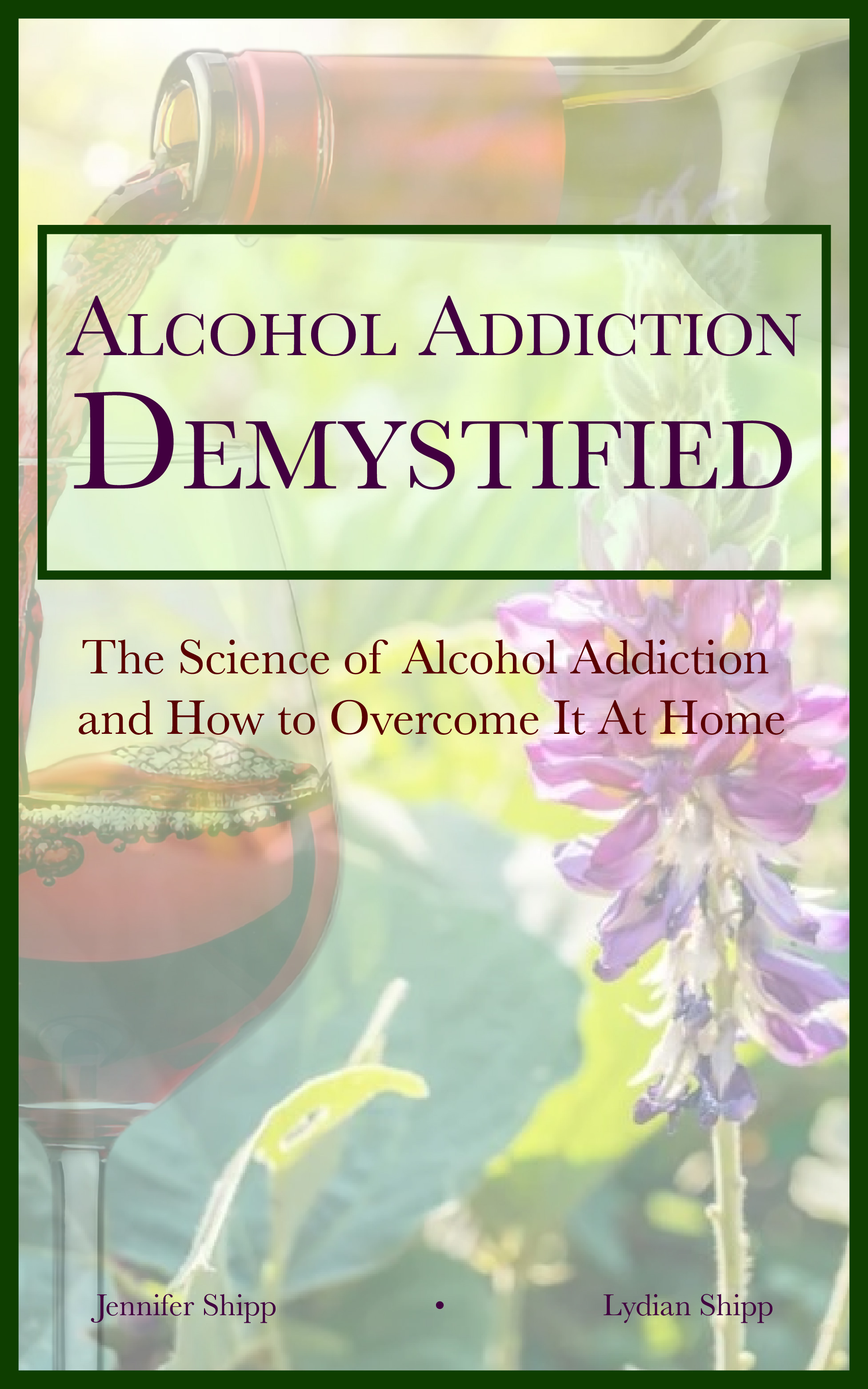A Diet to Cure Diabetes and Autoimmunity...but Not Cancer

Detailed Introduction
The ketogenic diet is popular right now as an anticancer diet even though it really shouldn’t be. Studies have shown that the keto diet for cancer is a bad choice and that makes sense up against the characteristics of all of the other anticancer diets that exist. Yet, at the time of this writing, many people are using and also recommending the use of the keto diet for cancer on social media. It’s tragic, which is why we’re writing an article dedicated to keto for cancer here. Anticancer diets need to include fruits and vegetables and low quantities of fats and proteins to support the liver and the pancreas. The Budwig diet is the only other anticancer diet that includes a very specific form of animal fats and proteins (quark) for the purposes of restoring the electricity to human cells, but the Budwig diet is tried-and-true. It works to beat cancer because the quark in the context of flaxseed oil is perfectly calibrated to heal human cells.What makes the keto diet unique is that it focuses on the consumption primarily of fats and proteins found in meats and cheeses as opposed to focusing on the consumption of whole fruits and vegetables as many of the other cancer diets do. This should be a red flag for anyone who has studied anticancer diets. Patients following the ketogenic diet eat animal products as long as the animal products are organic and not mixed with undesirable substances such as nitrates, nitrites, artificial flavorings, or colorings, sugar, sugar substitutes, etc. The stipulations of this run contrary to all of the other cancer diet stipulations and as it turns out, it doesn’t work very well to treat cancer.
According to the ketogenic diet, cancer patients should not just avoid sugar, but should avoid all carbohydrates. Avoiding sugar is valuable and important in an anticancer diet because sugar feeds cancer cells. But the keto diet says that less than 1/8th of the diet should be carbs. The rest of the diet should be all fats and proteins. This puts a lot of stress on the pancreas, the main organ at the root of a cancer diagnosis (click here to read more about pancreatic enzyme therapy for cancer). The ketogenic diet was developed to change the patient’s metabolism such that their main source of energy becomes ketones rather than glucose. This can have a healing impact on certain disease states, but cancer isn’t one of them. If you have cancer, choose a different strategy and avoid using keto for cancer.

Click here to schedule a health coaching call with us.
NOTE: We are including keto for cancer here because it can be a relevant tool to use if you have another serious disease that you’re treating at the same time that would respond well to the ketogenic diet. For example, a person with both diabetes and cancer might benefit from following the keto diet, but be aware that this diet puts extra stress on the pancreas. So a person who chooses to work with the keto diet for cancer should also take pancreatic enzymes religiously to support the pancreas. It would also be beneficial to follow the Lugol’s iodine protocol to support the organs under the rib cage that play a major role in healing from cancer. It's important though, to realize that the China Study Diet is also used to cure diabetes and other diseases, but this diet is not as taxing on the pancreas as the keto diet. In contrast to the keto diet for cancer, the China Study Diet has a huge amount of support in the scientific literature showing that it can literally "switch off" cancer when people eat a diet of less than 5% animal products. If you're looking for an anticancer diet that you can follow to beat cancer naturally, look more closely at The China Study Diet rather than the ketogenic diet. Even though, for cancer, keto is popular right now on social media, it's not a good choice for cancer specifically.Keto for Cancer: Does this diet actually work to cure cancer?
The ketogenic diet is calibrated to cure non-genetic diseases by giving the body the necessary nutrients in carefully determined proportions. The diet is very low in carbohydrates and higher in proteins and fats. [1][2][3]. The keto diet works well to treat a number of serious health issues, but it should not be used to treat cancer.Though the stipulations of the ketogenic diet may seem to run contrary to all of the other cancer diet stipulations, they’re actually still in agreement on one important count: the patient must avoid all sugars because sugars feed cancer cells. In fact, the concept of avoiding sugars is the underlying principle in this diet! The ketogenic diet says that cancer patients should not only avoid sugar, but should avoid all carbohydrates (whenever possible) that lead to the production of glucose in the body. Less than 1/8th of the diet should consist of carbohydrates. The rest of the diet should be entirely based on healthy fats and proteins, preferably from animal sources. Thus, the ketogenic diet is intended to change the patient’s metabolism such that their main source of energy becomes ketones rather than glucose (therefore theoretically taking away the cancer cells’ primary source of food).
Jan Kwasniewski first set forth the basic tenets of a ketogenic diet, but it was made popular by Dr. Robert Atkins in the 1990’s. Experts believe that the mechanisms through which this diet works to kill cancer cells have to do with the fact that the ketogenic diet excludes sugar, the primary fuel used by cancer cells. The ketogenic diet limits the supply of sugars/glucose available to cancer cells, ultimately causing the cells to starve to death. This is why the keto diet for cancer sometimes works, but patients would be wise to choose a different anticancer diet that supports the pancreas and also provides a lot of nutrients.

Click here to buy the 4 volume Cancer Cure Catalog series.
Since studies have noted that cancer patients with the highest blood glucose levels have the lowest survival rate, it seems reasonable to assume that glucose and cancer are intimately intertwined (and they are related, but not exactly in the way you might think). Thus the assumption has been that patients consuming a ketogenic diet, who have a very low blood glucose level because they consume very few sugars and starches, will theoretically recover more effectively from cancer.The science makes sense on paper, but in practice, the results are very different than what's been proposed theoretically.
Most successful anti-cancer diets agree that refined sugars (and even most unrefined sugars, including honey or maple syrup) are anathema to cancer recovery. In reality… most health recovery diets agree that refined sugars specifically aren’t helpful to regaining health. The same is true for other refined, processed foods. The ketogenic diet is no different when it comes to the treatment of disease. All of these diets agree that refined foods that are void of nutrients should be eliminated wherever possible (and indeed, this makes logical sense in every situation, without exception… whole, real foods are always going to be better than processed, highly refined foods). The differences between the ketogenic diet and other anti-cancer diets lie in the types of whole foods permitted.
Dr. Nicholas Gonzalez notes in his book, “Dismantling the Ketogenic Diet” that Dr. Atkins had a cancer clinic for many years that he later decided to close after experiencing little success in curing cancer patients on the ketogenic diet. Also in his book, Dr. Gonzalez notes that in the studies done by Dr. Seyfried into the effects of the ketogenic diet on cancer that one specific study on brain cancer didn’t actually measure the remission rate of the cancer or survival rates (which would be the most important point if one were to make the claim that the keto diet cures cancer), but rather it measured the changes in glucose metabolism and the diet’s tolerability. This is questionable since a lot of the information around the treatment of cancer using the keto diet is based around studies like this.
The other reports on the effects of the ketogenic diet on cancer reported in Dr. Seyfried’s work are not especially promising (most of the reports don’t have very good outcomes, unfortunately).
It’s worth noting, however, that although the ketogenic diet may not treat cancer in most cases, there are situations where a diet high in fat, protein, and animal products may still work to treat cancer. After all, as Dr. William Kelley and Dr. Gonzalez both have noted in their research and practice, different people with different health conditions usually require different diets in order to recover successfully (they saw that diet isn’t a “one size fits all” treatment). But, this type of diet that’s high in fat and protein isn’t a full ketogenic diet, and it only works in very specific situations.
For example, Dr. Kelley (an expert on pancreatic enzyme therapy and a pioneer in nutrition and diet in the treatment of cancer) observed that patients who suffered from “blood cancers” such as leukemia, lymphoma, and myeloma, as well as sarcomas of various kinds, tended to show improvements when administered a low carb diet with moderate levels of animal protein and high levels of animal fat. In contrast, patients suffering from more classic, “solid” tumors such as breast cancer, liver cancer, lung cancer, prostate cancer, and others showed the most success when following a plant-based diet with higher levels of carbohydrates and minimal animal fats and proteins (basically, what most people are likely to think of as an “ideal” diet, though in reality, an “ideal” diet varies from person to person).
One thing these two categories of patients had in common, however, was that they all consumed some carbohydrates daily, generally in the form of fresh fruit or carrot juice. The quantities of these fruits and juices allowed varied depending on the patient, but all patients did eat some carbs (and were not encouraged to eliminate carbs completely; balance is key). Thus, the high-fat, high protein anti-cancer diets prescribed by Dr. Kelley were generally different from the ketogenic diet.
So, the question is this: Does the ketogenic diet cure cancer?
According to the experts… Generally speaking, no, the ketogenic diet will not cure cancer (though basic tenants like the elimination of processed foods and refined sugars might still improve overall health). There are cases when it might work, yes, but in most cases a different diet will be required (such as the Gerson Diet or the Budwig Diet, for example). Nutritional protocols like the Gonzalez Protocol offer personalized diet plans that take the patient's full health picture into account.
But, that doesn’t mean that the ketogenic diet isn’t a valuable treatment! Certain health conditions can be treated successfully with the ketogenic diet (it certainly has its place in the nutrition world), as I’ll discuss below.
Diseases That Can Be Treated Using the Ketogenic Diet
Though this article was ultimately written specifically about cancer and keto, it’s worth noting that studies have demonstrated varying degrees of success in treating patients with the following health problems using the ketogenic diet:- Buerger’s Disease (thromboangiitis obliterans)
- Bechterew’s Disease
- Multiple Sclerosis
- Rheumatoid Arthritis
- Liver Cirrhosis
- Neurasthenia
- Type I Diabetes (diabetes mellitus)
- Type II Diabetes
- Atherosclerosis
- Cystitis / Bladder Irritation
- Hypertension
- Heart Disease
- Obesity
- Stomach Ulcers
- Bronchial Asthma
- Degenerative Diseases
- Glaucoma
- Psoriasis
- Migraine
- Infectious Disease
- Epilepsy
- Alcohol Addiction
- Other forms of addiction
- Polycystic ovarian syndrome / PCOS
- ADHD / ADD
- Metabolic deficits (like PDH deficiency, PFK deficiency, and glycogenosis type V)
- Narcolepsy
- Alzheimer’s disease
- Parkinson’s disease
Specifically, the ketogenic diet has been highly effective in the treatment of obesity, epilepsy, diabetes, heart disease, addiction, and metabolic syndrome. The other diseases listed above have shown varying degrees of remission in response to this diet.
So, although the ketogenic diet may not be particularly effective in treating cancer, that doesn’t mean that it doesn’t have its place in the alternative health treatment arsenal. For certain health problems, the ketogenic diet has been shown to be highly effective and has been used with great success in both research studies as well as in the private practice of doctors and nutritionists. Unfortunately, though, cancer isn’t one of these health problems that sees remission under this dietary protocol (at least not in most cases).
Again, to reiterate, patients should NOT choose the keto diet for cancer unless there is a compelling reason to do so. For example, if a person has diabetes as well as cancer, the keto diet could theoretically be used for cancer as long as the patient is diligent about taking pancreatic enzymes at every meal. There is also some evidence to suggest that the ketogenic diet may work to treat very specific types of cancer like astrocytomas or glioblastoma multiforme specifically, but other dietary protocols, combined with suitable nutrient and herbal medicines, may still be more suitable than the keto diet in many cases.
Ketogenic Diet Basics
On the ketogenic diet, the most important thing patients need to control is their intake of carbohydrates. Patients should aim to keep carb consumption under 50 grams per day. Patients may need to count carbohydrates at first in order to maintain this amount of carb consumption. Of course, the fewer the carbohydrates in the diet, the better when it comes to eating a ketogenic diet.The ketogenic diet also requires strict avoidance of sugars and high sugar foods, and people on this diet should also aim to avoid processed foods if possible (not all keto proponents require this, but I suggest this step if you’re planning to follow the ketogenic diet as a treatment for disease). Ketogenic-friendly foods are particularly high in fats. Consumption of a lot of proteins is also avoided because proteins can be converted easily into glucose inside the body. Approximately 75% of a patient’s diet should consist of fats (more information about the proportions of fats, proteins, and carbohydrates is outlined below).
There are a variety of ketogenic recipes and cookbooks available to help patients select the correct foods in the correct quantities. The following foods can be included in a ketogenic diet:
Permitted Foods
Fats (these should make up 75% of the diet):- Coconut Oil
- Olive oil
- Avocados
- Butter
- Eggs
- Wild game
- Beef (grass-fed only)
- Fish and seafood
- Fermented dairy products
- Organic, pasture fed poultry
- Raw, organic dairy products with full fat content
Proteins (these should make up only 20% of the diet):
- Raw seeds
- Raw nuts
- Legumes (these tend to also be high in carbs so will rarely make it into a true keto diet)
Low-carbohydrate vegetables (these should make up only a very small proportion of the diet, ideally less than 50 grams per day):
- Garlic
- Asparagus
- Mushrooms
- Broccoli
- Celery
- Cabbage
- Brussel sprouts
- Cauliflower
- Onion
- Collard greens
- Spinach
- Kale
Fruits, like vegetables, are high in fiber, and so they are also kept to a minimum on the ketogenic diet. Because fruit also contains higher levels of sugar, it should only be eaten occasionally since sugars should be avoided on this diet.
Proportion of fats : proteins : carbohydrates
Patients following the ketogenic diet consume foods according to the following proportions:- 1 part protein
- 2.5 to 3.5 parts fat
- 0.3 to 0.5 parts carbohydrates [2]
These proportions may vary depending on the specific ketogenic diet, but in all cases, carbohydrates are consumed in very low doses [10].
On Ketones and Ketosis...
The prefix “keto” in “ketogenic” comes from the fact that the body produces molecules known as ketones when very few carbohydrates are consumed and instead proteins and fats make up the bulk of the diet. Ketones are an alternative fuel supply produced by the body when glucose levels are low. Glucose is derived from carbohydrates so when a patient eats very few carbs, and only moderate amounts of protein, ketones are produced in the liver from fats. The ketones are used in place of glucose as fuel for the body [1][3].When ketones are produced, they can be used throughout the body as fuel. This fact is significant for two reasons:
- When the body switches to ketones as the primary fuel supply, insulin levels are lowered.
- When ketones are used for fuel, fat metabolism increases which makes this diet ideal for weight loss.
Supplements for the Ketogenic Diet
Patients practicing the ketogenic diet should take probiotics, a multi-vitamin supplement, and omega-3 supplements. Also, due to the increased animal protein in the diet, individuals following this diet or a similar one will benefit from taking a high quality pancreatic enzyme supplement and an ox bile supplement with every meal to offer the body additional support with digestion and detoxification. These supplements are valuable because they help lessen the body’s load in terms of producing pancreatic enzymes and bile (animal products and high protein foods require more of these for digestion), but pancreatic enzymes specifically are also essential for the destruction of pathogens and abnormal cells, and can thus help encourage recovery.Weight Loss Using the Ketogenic Diet
Weight loss tends to be easier with the ketogenic diet. And as an added benefit, the ketogenic diet emphasizes the value of ketones as a source of fuel for the brain, which makes it possible for patients to think more clearly while on the diet.When the body’s metabolism switches to consuming ketones for fuel it is said to be in a state of “ketosis”. Fasting and the ketogenic diet can both produce a state of ketosis in the body. In a state of ketosis, the body is metabolizing fat as its primary source of fuel.
Patients typically follow the ketogenic diet as part of a cancer protocol that includes other integrative cancer treatment options [2].
Safety and Effectiveness
Over twenty studies have shown that this diet can help patients lose weight and improve overall health. Additionally, societies around the world such as the Maasai in Africa and the Eskimos in Alaska and the far reaches of North America eat a diet that is remarkably similar to the ketogenic diet, and have for generations with a surprising record of good health.Intermittent Fasting and the Ketogenic Diet
While the ketogenic diet causes the metabolism to switch over to using ketones for fuel, fasting can achieve the same goal. But because fasting for long periods of time is difficult, it taxes the liver and the gallbladder, and it can be potentially dangerous, many cancer patients instead choose to “intermittently fast” for 20 hours a day. On a 20 hour fast, patients only eat between 3:00 PM and 7:00 PM each day which allows their bodies to detoxify while producing ketones for fuel rather than relying on glucose metabolism [10].Other Important Information
The Holistic Bio Spa in Puerto Vallarta, Mexico offers the ketogenic diet as part of a cancer treatment protocol (they may also offer support on this diet for the treatment of other diseases):The Holistic Bio Spa Plaza Marina, Local B-10 Puerto Vallarta, Jalisco, México 48335 +52-332-221-1607 [email protected] https://www.holisticbiospa.com/
Contraindications
The ketogenic diet should not be used by patients with the following physical considerations without consulting a doctor:- Insulin-dependent diabetics
- Patients who take medication for high blood pressure
- Women who are breastfeeding
Resources:

 Alcohol Addiction Demystified: The Science of Alcohol Addiction and How to Overcome It At Home - BUY HERE!
Alcohol Addiction Demystified: The Science of Alcohol Addiction and How to Overcome It At Home - BUY HERE!

















